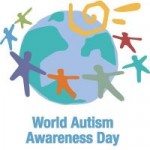 Some of the symptoms of the autistic condition Asperger Syndrome, such as a need for routine and resistance to change, could be linked to levels of the stress hormone cortisol, suggests new research led by the University of Bath. [continue reading…]
Some of the symptoms of the autistic condition Asperger Syndrome, such as a need for routine and resistance to change, could be linked to levels of the stress hormone cortisol, suggests new research led by the University of Bath. [continue reading…]
Autism
 In the first study of its kind researchers will use video clips of spontaneously produced facial expressions in a real life social context to explore emotion recognition in autism.
In the first study of its kind researchers will use video clips of spontaneously produced facial expressions in a real life social context to explore emotion recognition in autism.
This research, carried out at The University of Nottingham, will go beyond the more artificial emotion recognition tasks that have previously been used. The eye movements of volunteers will also be tracked to find out which areas of the face were looked at while volunteers make spontaneous judgements. [continue reading…]
 Scientists at Albert Einstein College of Medicine of Yeshiva University have proposed a sweeping new theory of autism that suggests that the brains of people with autism are structurally normal but dysregulated, meaning symptoms of the disorder might be reversible.
Scientists at Albert Einstein College of Medicine of Yeshiva University have proposed a sweeping new theory of autism that suggests that the brains of people with autism are structurally normal but dysregulated, meaning symptoms of the disorder might be reversible.
The central tenet of the theory, published in the March issue of Brain Research Reviews, is that autism is a developmental disorder caused by impaired regulation of the locus coeruleus, a bundle of neurons in the brain stem that processes sensory signals from all areas of the body. [continue reading…]
Individuals with autism spectrum disorders (ASD) tend to stare at people’s mouths rather than their eyes. Now, an NIMH-funded study in 2-year-olds with the social deficit disorder suggests why they might find mouths so attractive: lip-sync—the exact match of lip motion and speech sound. Such audiovisual synchrony preoccupied toddlers who have autism, while their unaffected peers focused on socially meaningful movements of the human body, such as gestures and facial expressions. “Typically developing children pay special attention to human movement from very early in life, within days of being born. But in children with autism, even as old as two years, we saw no evidence of this,” explained Ami Klin, Ph.D., of the Yale Child Study Center, who led the research. “Toddlers with autism are missing rich social information imparted by these cues, and this is likely to adversely affect the course of their development.”
Klin, Warren Jones, Ph.D., and colleagues at Yale, report the findings of their study, funded in part by the National Institute of Health’s National Institute of Mental Health, online March 29, 2009 in the journal Nature. [continue reading…]
